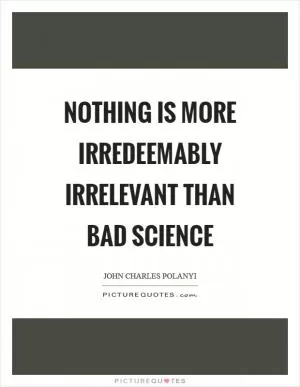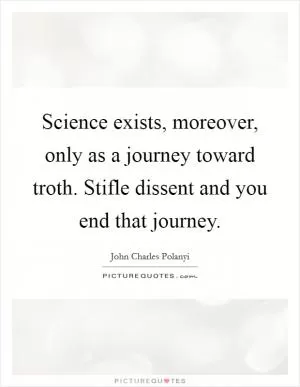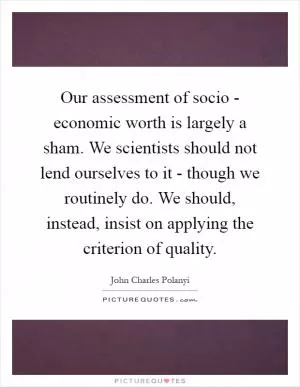Some dreamers demand that scientists only discover things that can be used for good

Some dreamers demand that scientists only discover things that can be used for good
John Charles Polanyi, a renowned chemist and Nobel laureate, once said, "Some dreamers demand that scientists only discover things that can be used for good." This statement raises an important ethical question about the role of scientists in society and the potential consequences of their discoveries. While it is true that scientific advancements have the potential to bring about positive change and improve the quality of life for many people, it is also important to consider the potential negative implications of scientific discoveries.One of the main arguments in favor of the idea that scientists should only discover things that can be used for good is that it is the moral responsibility of scientists to consider the potential impact of their work on society. Scientists have a unique position of power and influence, and with that power comes a responsibility to use their knowledge and skills for the betterment of humanity. By focusing on discovering things that can be used for good, scientists can help to address pressing global challenges such as climate change, disease, and poverty.
However, it is also important to recognize that scientific discoveries are often unpredictable and can have unintended consequences. For example, the development of nuclear technology has led to both positive advancements in medicine and energy production, as well as devastating consequences such as nuclear weapons and environmental pollution. In this sense, it is not always possible for scientists to predict how their discoveries will be used or what impact they will have on society.
Furthermore, the idea that scientists should only discover things that can be used for good raises questions about who gets to define what is "good" and how that determination is made. What may be considered beneficial for one group of people may have negative consequences for another. Additionally, the pursuit of knowledge for its own sake is a fundamental principle of scientific inquiry, and placing restrictions on what scientists can discover may hinder the progress of science and innovation.












 Friendship Quotes
Friendship Quotes Love Quotes
Love Quotes Life Quotes
Life Quotes Funny Quotes
Funny Quotes Motivational Quotes
Motivational Quotes Inspirational Quotes
Inspirational Quotes